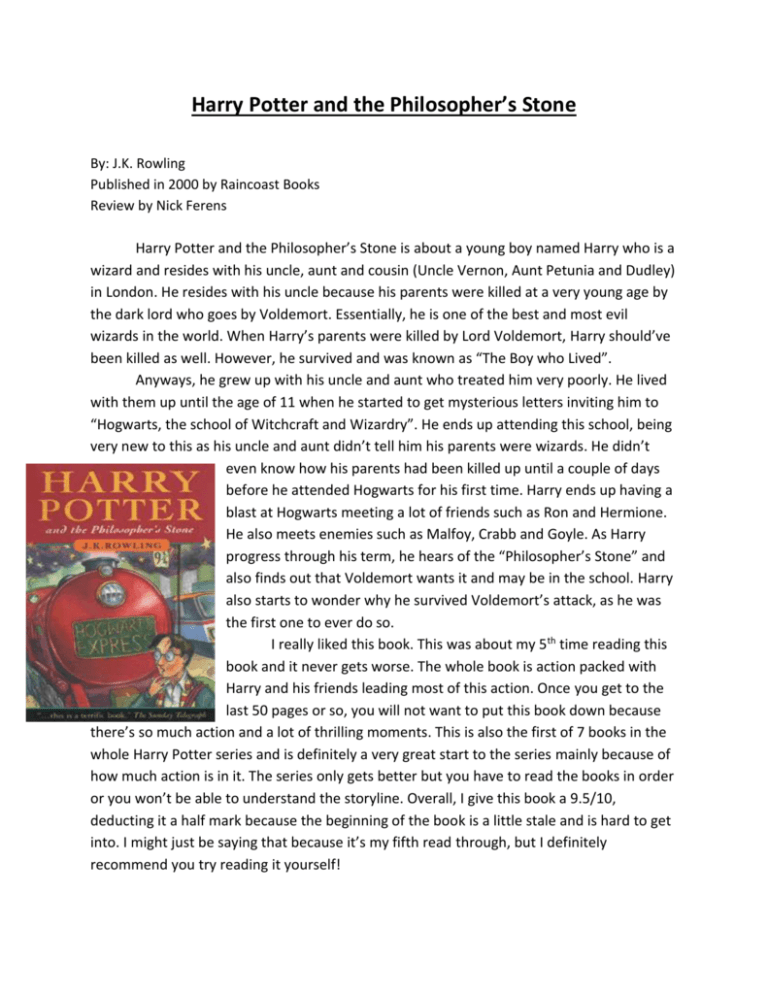In the vast realm of literature, few books have ignited the imagination of readers quite like “Harry Potter and the Philosopher’s Stone.” J.K. Rowling’s inaugural entry into the wizarding world is not merely a tale of magic and adventure; it serves as a profound narrative that invites readers to shift their perspectives and rekindles a childlike curiosity within us all. From its intricate world-building to its rich thematic resonance, this book lays a foundation that promises to transport readers into a realm where the extraordinary becomes possible.
The narrative unfolds as we are introduced to the mundane world of Harry Potter, an orphaned boy who lives with his neglectful relatives, the Dursleys. This initial setting serves as a powerful contrast to the enchanting world that awaits him. Rowling expertly weaves a tale that resonates with anyone who has ever felt out of place or unrecognized. In this regard, the book acts as a mirror reflecting the struggles of countless children who yearn for love and acceptance. The introduction of the letter from Hogwarts serves as an excellent pivot point; it is a moment brimming with promise, heralding a shift from the ordinary to the extraordinary.
As Harry is whisked away to Hogwarts School of Witchcraft and Wizardry, readers are enveloped in a meticulously crafted universe. Rowling’s attention to detail is nothing short of impressive. From the descriptions of Diagon Alley, with its cobbled streets and shops brimming with magical wares, to the grandeur of the Hogwarts castle itself, every page is vivid with imagery. This rich portrayal compels readers to immerse themselves in the narrative fully. One can almost hear the bubbling cauldrons and inhale the scent of spell-binding potions wafting through the halls. It is this level of craftsmanship that piques curiosity and fosters a desire to not just read, but to experience the journey alongside Harry.
Thematically, the book delves into profound issues such as friendship, bravery, and the struggle between good and evil. Harry’s growing bond with Hermione Granger and Ron Weasley signifies the importance of companionship in facing life’s adversities. The trio navigates the labyrinth of Hogwarts together, showcasing the essence of loyalty and camaraderie. Rowling adeptly illustrates that friendship is not merely a backdrop; it is an essential cornerstone that fortifies individuals as they confront challenges. This portrayal motivates readers to reflect on their relationships and the pivotal role friends play in their lives.
Additionally, the juxtaposition of the mundane world with the magical invites readers to question their preconceived notions. The Dursleys embody a caricature of ignorance and disdain for those who are different. In contrast, the world of wizards celebrates diversity and self-acceptance. This narrative dichotomy urges readers to reconsider their own biases and the societal structures that dictate behavior. The character of Severus Snape, steeped in ambiguity, further complicates this conversation. He embodies the theme that not all is as it appears, challenging readers to evaluate their own judgments and assumptions.
Rowling also masterfully entangles elements of suspense and intrigue in the storyline. The overarching mystery surrounding the Philosopher’s Stone serves as an engaging plot device that keeps readers on the edge of their seats. As Harry, Ron, and Hermione unravel clues, they venture deeper into a world riddled with challenges that test their intellect, courage, and morality. This narrative arc creates a rhythm that is both exhilarating and thought-provoking. The various twists and turns allow for a build-up of tension that culminates in a climactic resolution, marking Harry’s transformative journey from an unassuming boy to a burgeoning hero.
At its core, “Harry Potter and the Philosopher’s Stone” transcends the boundaries of a mere children’s book. It challenges readers of all ages to engage in introspection, to ponder the essence of identity, love, and moral choice. Rowling’s narrative deftly illustrates that courage is not the absence of fear but the resolve to act in spite of it. Harry’s evolution as he learns about sacrifice, loyalty, and the value of standing up for what is right resonates deeply within the human experience.
The conclusion of the novel leaves readers with a lingering sense of wonder and the tantalizing prospect of what lies ahead. As Harry departs Hogwarts for the summer, he does so not just as a boy who discovered he is a wizard, but as someone who has acquired knowledge, formed indelible friendships, and ignited a deep-seated longing for adventure. Rowling ensures that the reader’s mind is abuzz with anticipation for the future, while simultaneously reflecting on the lessons imparted throughout the narrative.
In summary, “Harry Potter and the Philosopher’s Stone” is a remarkable testament to the power of storytelling. It invites readers to embark on a journey of self-discovery, challenging them to embrace curiosity and reconsider their perspectives on life and the world around them. This enchanting tale is not merely about magic but about the transformative power of love, friendship, and the resilience of the human spirit. Readers are left enchanted, inspired, and above all, eager to delve deeper into the expansive universe that Rowling has so beautifully crafted.
